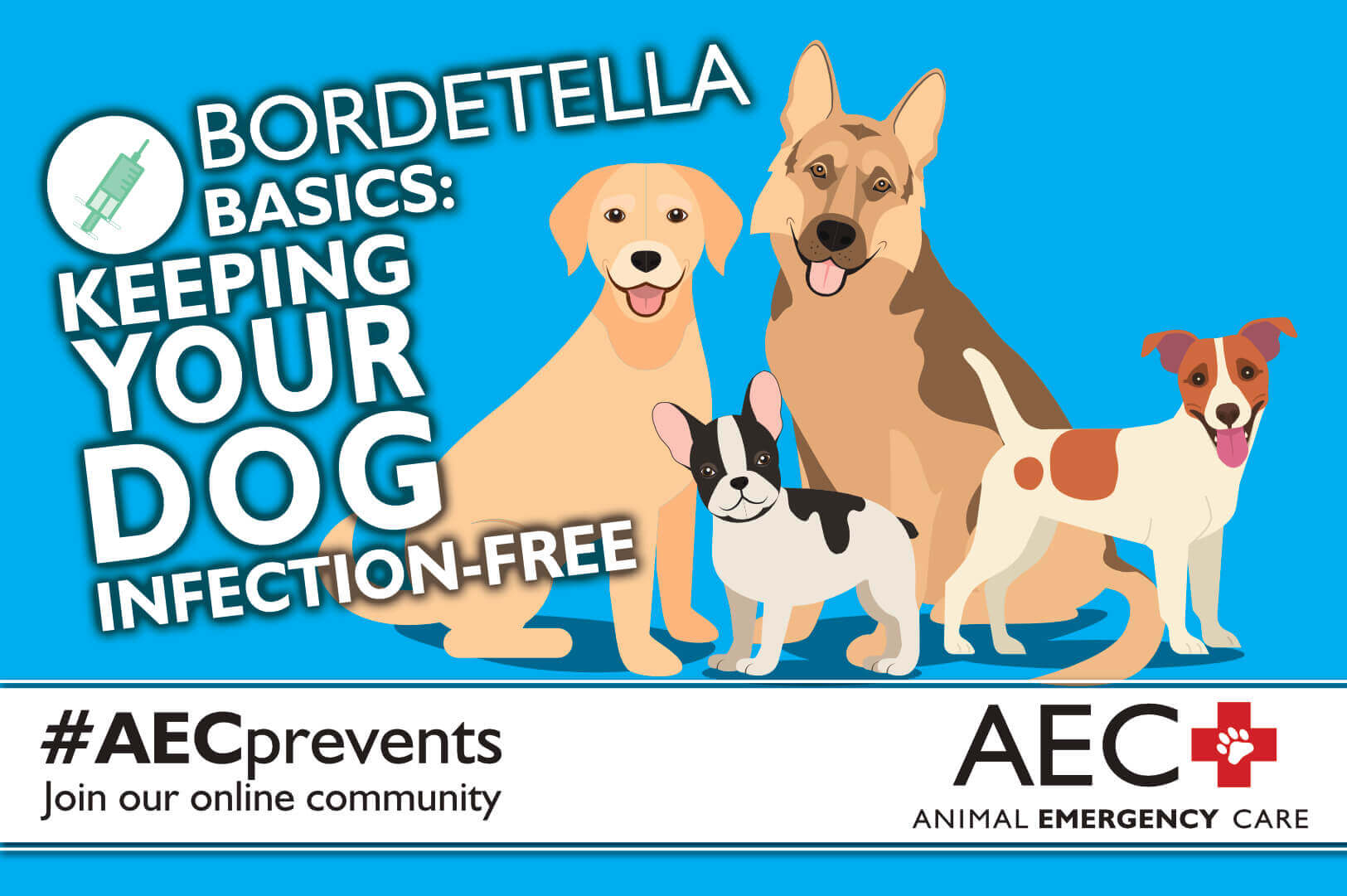Dogs are naturally social animals who enjoy time with their pet parents and other dog friends. Many pet parents bring their dogs everywhere because of their close bond, and because they enjoy the companionship. Regular preventive care for your dog is critical to ensure they are protected from the disease agents and bacteria present in various environments. Our Animal Emergency Care team describes how you can protect your dog from becoming infected with Bordetella, a common respiratory bacteria.
What is Bordetella in dogs?
Bordetella bronchiseptica is a gram-negative bacteria and the primary pathogen that causes kennel cough (i.e., infectious tracheobronchitis) in dogs. These extremely contagious bacteria attach to the protective respiratory cilia and prevent specialized immune cells from destroying them. Dogs with bordetella shed these infectious bacteria in their respiratory secretions. Any breed, age, or sex is at risk for kennel cough although unvaccinated pets, puppies, and senior dogs are at increased risk of severe infection. Transmission occurs when secretions from an infected dog travel through the air and are inhaled by a healthy dog. The bacteria can also be passed through dog bowls, toys, or other objects that an infected dog has contacted. Transmission commonly occurs in places such as:
- Crowded kennels or animal shelters
- Boarding facilities
- Areas with poor ventilation
- Dog parks
- Pet stores
- Obedience classes
- Grooming salons
What are signs of Bordetella infection in your dog?
Dogs who are infected with Bordetella will show symptoms 2 to 14 days after the initial infection. They will experience a harsh, hacking cough as if something is stuck in their throat. Some dogs will have only a mild cough and will recover in two weeks without any treatment or further concerns. However, in more severe cases, dogs may experience a persistent and severe cough and pneumonia. Other clinical signs may include:
- Fever
- Lethargy
- Decreased appetite
- Sneezing
- Nasal discharge
- Eye discharge
- Retching
Pets with a more complicated form of bordetella will likely have secondary infections from other bacteria or viruses. This complex infection is referred to as canine infectious respiratory disease (CRD) and usually occurs in dogs older than 6 months. Ensure you keep your dog away from other pets to avoid spreading this contagious disease. These bacteria remain in their system for up to three months after infection and can easily spread to other dogs.
What is Bordetella treatment in your dog?
Dogs with an uncomplicated Bordetella infection will recover quickly without any treatment. Animals with a chronic cough or more severe signs associated with pneumonia may require more involved treatments and possible hospitalization. Bring your dog to your family veterinarian if they have any Bordetella signs. Dogs with Bordetella will usually cough when their neck is gently massaged over their trachea. Other diagnostic tests may be recommended including X-rays to check for bronchitis and pneumonia, blood work for infection evaluation, and a respiratory disease screening test. Dogs with mild signs may be prescribed a course of antibiotics and a cough suppressant while dogs with severe infection may require hospitalization and the following treatments:
- Intravenous (IV) fluids
- IV antibiotics
- Oxygen therapy
- Cough suppressants
Financial options for your dog’s Bordetella treatment
Treatment for kennel cough or more severe CRD infection can lead to a high veterinary bill, especially for pets who require hospitalization for pneumonia. Pet insurance plans like Trupanion Express offer policies that can help cover the costs associated with unexpected veterinary treatment. Many financial institutions offer pet health savings accounts that can help ensure money is available to cover high veterinary expenses. Pet parents can also take advantage of other payment methods such as Care Credit and Scratch Pay and spread out veterinary bill payments over an extended period.
How to prevent Bordetella in your dog
Regular vaccination is vital to protect your dog against Bordetella infection. Several vaccination types are available, and some also protect against other common respiratory bacteria and viruses that can occur with bordetella. Your family veterinarian will recommend a vaccination based on your pet’s lifestyle and behavior. Bordetella vaccine types include:
- Intranasal — This vaccine also protects against other respiratory agents that can cause CRD. Some dogs may experience sneezing or nasal discharge for a few days after vaccination.
- Oral —The oral vaccine protects against Bordetella bacteria only but may be more easily administered to some dogs, especially those with small or narrow nasal passages.
- Injectable — Aggressive dogs or dogs with behavior problems will most likely receive the injectable bordetella vaccine for protection against Bordetella bacteria.
Ensure your dog is vaccinated well in advance of possible exposure such as boarding or grooming facilities and avoid bringing them to crowded or poorly ventilated areas where infections can easily be spread.
Call our office if your dog has any Bordetella infection symptoms and your family veterinarian is unavailable. We recommend regular check-ups with your family veterinarian and keeping your dog’s vaccinations current to protect them from this potentially serious respiratory infection. #AECprevents
Sources:
https://veterinarypartner.vin.com/default.aspx?pid=19239&id=4951478


